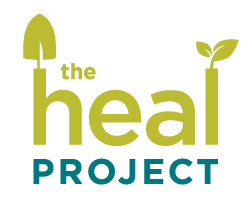Nourish to Flourish: How our mental well-being is interconnected with nature
By Angela Reiner
Now more than ever, times are calling for us to take care of our well-being. Not only to keep our immune systems strong and healthy to ward off any potential exposure during the Coronavirus pandemic, but also to take care of our mental well-being as we weather these uncertain times and adapt to a “new normal” that entails more conscious acts of social distancing and more conscious acts of social justice from us for the well-being of our country and our world. It can be an overwhelming time for many.
The good news is, the more we can reconnect to our roots through nature, and help our children to do so too, the more resilient we can become to flourish in our health. Connecting with nature enables us to connect on a deeper level with ourselves, our families, and our communities, and to see the inter-relationship of our own well-being as it relates to the collective well-being of our planet.
A wide array of research shows that connecting with nature significantly improves our mental well-being and health. More so, evidence featured in The Wall Street Journal explains that what we eat greatly affects our mental health, helping us ward off depression. Some of the answers to healthier mental well-being truly lie in organic, unprocessed produce, which we can get directly from nature and grow ourselves to eat. Often, the experience of depression is rooted in a deep sense of disconnect, something many may be suffering from right now given the physical distancing we have to practice. However, an important distinction to make is that physical distance does not mean we have to disconnect from our ability to connect with ourselves, others, or nature. Our well-being and happiness arise in times of feeling a sense of greater connection with ourselves, our sources of social support, and our surroundings, so it is important to find creative ways to integrate this.
One simple antidote is to spend time outdoors (and even better if you can do this while connecting with your family or friends). Spending time outside in nature has been shown to bring about more mental well-being and happiness. REI is sponsoring a study being led in the Bay Area where UCSF doctors prescribe patients a dose of getting outdoors as part of their preventative health. This is a free way for many of us to reduce stress and makes a key component of mental health accessible to all when there is so much inequity in access to care in our current system. Other research studies have backed this effort by showing that time in nature greatly benefits our health and well-being by reducing stress and improving mood.
When we can spend time outdoors doing mindful renewal activities like gardening, for instance, our mental health is even further bolstered by the time we are spending simply being present away from the distractions of screens and technology to quietly connect in our relationship with plants and nature. A similar practice in Japan known as “forest bathing” is the practice of being outdoors in the presence of trees. A Time article by Dr. Qing Li, a Japanese expert on forest bathing, highlights that by simply experiencing senses of sight, hearing, taste, smell, and touch while observing nature without distractions, we can re-energize ourselves from fatigue from the clean air and oxygen. Trees and plants also release phytoncides, which help us boost anti-cancer proteins, decrease anxiety and anger, and improve sleep.
Most profoundly, it has been shown that eradicating more processed, fried, and sugary foods while adding in more vegetables and fruits to our daily diet has helped boost individuals’ moods. People in these studies who have eaten certain studied foods that ward off depression, have experienced reduced insomnia, more energy, and a greater engagement in daily activities. The types of foods that contribute to greater well-being are foods higher in vitamin B6. Vitamin B6 boosts serotonin, which regulates our mood and sleep, DHA, which promotes brain function, and prebiotics, which promote gut health. Gut health has been proven to affect our mental health as well. This includes types of foods like spinach, cabbage, bananas, sweet potatoes, avocadoes, onions, asparagus, artichokes, garlic, and fermented vegetables like turnips, cucumbers, or carrots. Many of which we are lucky enough to be able to grow ourselves or rely on local agriculture to supply here in the Coastside. This means that the food sources are fresher and denser in nutrients than produce that needs to be shipped from far away.
So, if you are feeling a bit stir crazy these days while “sheltering in place,” now is as great a time as ever to step outside into your home garden or community garden as a radical act of self-care. Use this time and engage your children in the activity, too, to help our next generation learn early on more effective coping strategies to bolster their well-being by staying interconnected with nature. We can do this so easily simply by taking a mindful moment outdoors in our community, harvesting the fruits of our labor from our gardens, and creating a fun way to socially connect by having picnic to savor the healthy food we’ve grown, as we nourish to flourish in our well-being and happiness overall.
—
Angela Reiner is the Founder of The Flourishing Co. She is a Happiness Coach & Consultant based in Half Moon Bay, CA. Her work is grounded in Positive Psychology, a research-based branch of psychology that studies the "science of happiness,” what really causes people to flourish in their lives and work, and applies these findings in practical ways.
Angela’s background is in global human resources in the non-profit and private sectors, having previously worked at Partners in Health and Bain & Company. She has a Master's in Positive Organizational Development & Change from Weatherhead School of Management at Case Western Reserve University. She holds certifications in Transformational Leadership Coaching from Georgetown University and Positive Psychology from the Wholebeing Institute. She also is a 200-hour registered yoga teacher. Throughout her career, Angela has used positivity to bring out the best in people, organizations, and the communities she has worked with for greater collective human flourishing.



